As a local chiropractor, I often see patients who are unaware of how simple adjustments to their daily routines can significantly boost their brain health. It's not just about spinal alignment; it's about a holistic approach to well-being. By optimizing your nutrition, you can fuel your brain with the essential nutrients it needs for optimal function. Staying socially connected is equally important, as strong relationships can enhance cognitive function and emotional resilience.
Regular exercise is another key component—I encourage my patients to incorporate physical activity into their lives, as it promotes blood flow to the brain and supports overall health. Additionally, practicing mindfulness can be incredibly beneficial; it helps reduce stress and enhances mental clarity.
By prioritizing these lifestyle adjustments alongside your chiropractic care, you're not only supporting your brain but also paving the way for a more vibrant and fulfilling life. If you're curious about how to implement these changes effectively, I'm here to guide you on your journey to better health.
Optimize Your Nutrition
As your local chiropractor, I'm here to share how optimizing your nutrition can significantly enhance your brain health. The food you consume plays a crucial role in how your brain operates, which is why making informed dietary choices is vital for your overall wellness.
To start, consider adding foods that are rich in omega-3 fatty acids to your diet. These healthy fats, found in fatty fish, walnuts, and flaxseeds, are essential for maintaining the structure of brain cells and can enhance cognitive function. Including these in your meals can be a simple yet effective way to support your brain.
Don't overlook the power of antioxidants either. Foods like berries, dark chocolate, and leafy greens are loaded with these beneficial compounds, which protect your brain from oxidative stress. Aim to fill your plate with a variety of colorful fruits and vegetables daily to harness their full protective benefits.
Whole grains also play a significant role in brain health, providing a consistent source of glucose, which is your brain's primary energy source. Incorporate options like brown rice, quinoa, and whole-grain bread into your meals to help maintain stable energy levels throughout the day.
Hydration is another key aspect of optimal brain function. I encourage you to drink plenty of water each day, as even mild dehydration can hinder cognitive abilities. Keep a water bottle handy to remind yourself to stay hydrated!
When it comes to snacking, opt for choices that are beneficial for your brain health. Nuts, seeds, and yogurt are excellent options that can help keep your focus sharp and your concentration strong.
Finally, be cautious about your intake of sugar and processed foods. High sugar levels can lead to energy spikes and crashes, negatively affecting your mood and mental clarity. By prioritizing whole, nutrient-dense foods, you'll not only support your brain health but also enhance your overall well-being.
As your chiropractor, I believe that a holistic approach, which includes proper nutrition, can greatly complement the benefits of chiropractic care and natural healing. Let's work together to improve both your brain health and overall vitality!
Incorporate Regular Exercise
As a local chiropractor, I want to emphasize the incredible benefits of incorporating regular exercise into your daily routine, especially for your brain health.
It's important to understand that exercise goes beyond just physical fitness; it plays a crucial role in enhancing cognitive function and improving your mood. When you engage in physical activity, your brain releases endorphins and other beneficial chemicals, leading to reduced stress and heightened energy and focus throughout your day.
You don't need to commit to running marathons or spending endless hours in a gym to reap these benefits. Simple activities such as walking, dancing, or even gardening can significantly impact your mental well-being.
Ideally, aim for at least 150 minutes of moderate aerobic exercise each week. This can be divided into manageable sessions, making it easier to integrate into your lifestyle. I encourage you to find an activity you genuinely enjoy, as this will help you maintain consistency over time.
In addition to enhancing your mood, regular exercise promotes neurogenesis, which is the process of creating new brain cells. This is vital for maintaining cognitive health, particularly as we age. Incorporating strength training into your routine has also been shown to improve memory and executive function.
So, consider adding some weightlifting or resistance exercises to your regimen.
Let's not overlook the social aspect of exercise! Joining a group or class can provide motivation and a sense of community, which further enhances your mental well-being.
In summary, prioritizing regular exercise can lead to sharper thinking, improved memory, and a happier you. So, let's get you moving! Lace up those shoes, and remember that your brain—and your overall health—will be grateful for it.
As your chiropractor, I'm here to support you on this journey toward better health and well-being through natural healing approaches.
Practice Mindfulness Techniques
As a local chiropractor, I want to share how practicing mindfulness techniques can significantly contribute to your brain health and overall well-being, complementing the benefits of chiropractic care. Mindfulness is about training your mind to focus on the present moment, which can help reduce stress and enhance clarity in your daily life.
When you engage in mindfulness, you learn to observe your thoughts and feelings without judgment, fostering a sense of calm and awareness that aligns beautifully with the principles of natural healing. This can be especially beneficial for those of you who may experience tension or discomfort in your body, as it helps you connect your mental state with your physical health.
To incorporate mindfulness into your routine, I recommend starting with mindful breathing. Find a quiet space, sit comfortably, and close your eyes. Focus entirely on your breath—inhale deeply through your nose, hold for a moment, and exhale slowly through your mouth. Practicing this for just a few minutes can help settle your mind and prepare you for a healing journey.
Another powerful technique is body scanning, which can enhance your awareness of physical sensations. Lie down or sit comfortably, and mentally scan your body for any tension or discomfort, starting from your toes and moving up to your head. Acknowledge any sensations you may feel without attempting to change them. This practice can help you become more attuned to your body and relieve stress, which is essential for maintaining a healthy spine and nervous system.
You can also integrate mindfulness into everyday activities like eating or walking. Focus on the sensations, smells, and sounds around you as you engage in these tasks. By immersing yourself in the moment, you'll not only enhance your awareness but also reduce anxiety—both of which can contribute to better overall health.
Incorporating these mindfulness techniques into your lifestyle can work hand in hand with chiropractic care to boost your brain health and foster emotional resilience. By making mindfulness a habit, you may notice a positive shift in your mental clarity and overall well-being, supporting your journey to natural healing.
Prioritize Sleep Quality
As a local chiropractor, I want to emphasize the crucial role that quality sleep plays in your overall brain health and well-being. Many people overlook this aspect, thinking of sleep merely as a time to recharge their bodies. However, quality sleep is vital for cognitive function, memory consolidation, and maintaining a balanced mental state. By prioritizing your sleep, you aren't just resting; you're allowing your brain the necessary time to recover and rejuvenate, which is essential for optimal health.
I recommend aiming for 7 to 9 hours of restorative sleep each night. Establishing a consistent sleep schedule—going to bed and waking up at the same time every day—can help regulate your body's internal clock. This consistency makes it easier for you to drift off to sleep and wake up feeling refreshed.
Incorporating a relaxing bedtime routine is also beneficial; activities such as reading a book, taking a warm bath, or practicing deep breathing exercises can signal to your brain that it's time to wind down.
Creating a sleep-friendly environment is another key factor. Ensure your bedroom is cool, dark, and quiet. Investing in a quality mattress and supportive pillows can significantly enhance your comfort and promote better sleep. Additionally, limiting exposure to screens and blue light at least an hour before bedtime is important, as these can interfere with your ability to fall asleep.
Don't forget the impact of your diet and physical activity on sleep quality. Avoid large meals, caffeine, and alcohol close to bedtime, as these can disrupt your sleep cycle. Regular physical activity during the day can also contribute to improved sleep.
Stay Socially Connected
As a local chiropractor, I want to emphasize the importance of strong social connections for your overall well-being, including your brain health. Engaging with friends and family isn't just about enjoying good company; it also stimulates your mind through meaningful conversations and shared experiences. These social interactions play a crucial role in keeping your brain active and engaged, which is essential for maintaining cognitive function as we age.
You might think that you need a large social circle to benefit from this, but even small, consistent interactions can make a significant impact. Simple gestures like a phone call, a coffee meetup, or participating in community activities can greatly enhance your mental resilience. Research shows that people who are socially active tend to experience lower levels of stress, anxiety, and depression—factors that can adversely affect not only your mental health but also your physical health.
In addition, maintaining social connections often encourages a more active lifestyle. When you have plans with others, you're more likely to participate in physical activities that are critical for your overall health. Engaging in group exercises, joining walking clubs, or playing team sports not only fosters social interaction but also supports cardiovascular health, which is closely linked to cognitive function.
To strengthen your social ties, consider joining local clubs, volunteering, or attending events in your community. Even online forums and social media can help you connect with others who share your interests.
Conclusion
As your local chiropractor, I want to share some valuable insights on how simple lifestyle adjustments can significantly enhance your brain health and overall well-being. By focusing on optimizing your nutrition, staying physically active, incorporating mindfulness practices, prioritizing restorative sleep, and nurturing social connections, you can create a strong foundation for a healthier mind.
It's important to remember that consistency is crucial. I encourage you to commit to these habits in your daily routine. Over time, you may notice improvements in your cognitive function, emotional resilience, and mental clarity. Your brain is a vital part of your overall health, and it deserves the best care possible.
In our practice, we believe in the principles of natural healing, and these strategies align perfectly with that philosophy. Start incorporating these adjustments today, and together, we can work towards a healthier, sharper mind!



